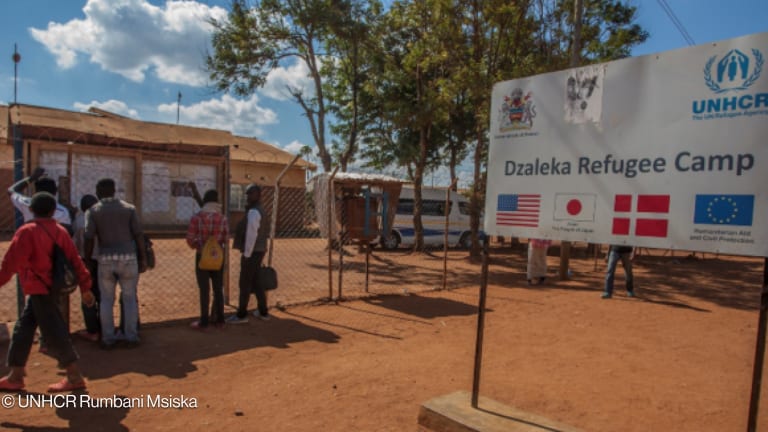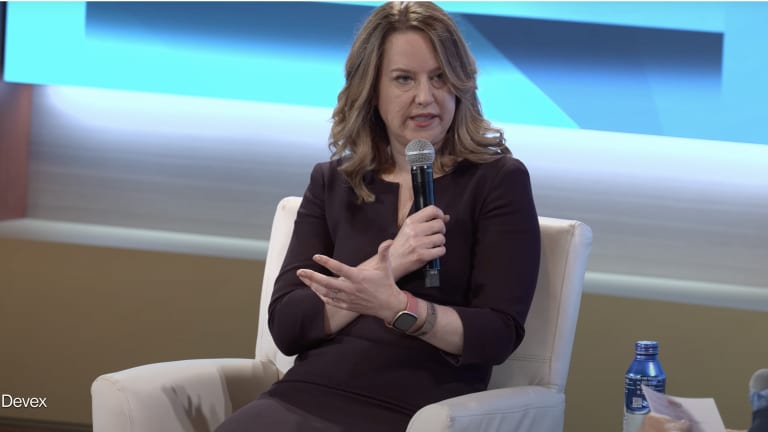
The hosts of next week’s International Donors’ Conference in Solidarity with Venezuelan Refugees and Migrants say the world must respond adequately to a funding appeal to support those who have been forced to flee their collapsing country or many will go without necessities such as food and shelter.
The Canadian government, UN Refugee Agency, and International Organization for Migration are hosting Thursday’s virtual pledging event, which aims to raise funds for the $1.44 billion Regional Refugee and Migrant Response Plan. Eduardo Stein, joint UNHCR-IOM special representative for Venezuelan refugees and migrants, said that “solidarity and support are needed now more than ever” for the Western Hemisphere’s largest-ever refugee crisis.
“This is the world’s second-largest displacement crisis and unfortunately often goes unnoticed and rarely makes it to the headlines,” Stein said at a press conference Friday. “The burden should not fall on countries in the region alone. Addressing displacement requires a global and inclusive partnership where solidarity and responsibility are shared by the entire international community along host countries in the region.”
“A shortfall in funding would leave ... Venezuelans with little options to rebuild a life in dignity.”
— Eduardo Stein, joint UNHCR-IOM special representative for Venezuelan refugees and migrantsOver 5.6 million Venezuelans have fled their country, according to UNHCR, but the situation has been chronically underfunded. It is the world’s second-largest refugee exodus after Syria’s, which had seen $20.8 billion in funding by the end of last year.
Donor funds to Syria’s crisis by 2020 amounted to $3,150 per refugee, while each Venezuelan refugee had only garnered $265.
The 2021 Regional Refugee and Migrant Response Plan was developed by 159 organizations in 17 countries that are hosting Venezuelans. Money will support refugees and migrants through shelter, health care, education, food assistance, and more.
Last year’s plan, which called for $1.35 billion, was only half funded, meaning organizations are not able to serve everyone who needs assistance.
Michael Grant, assistant deputy minister for the Americas at Global Affairs Canada, said the donor conference aims to raise the profile of the situation, mobilize additional resources through multilateral institutions, and ensure that attention to the crisis continues and that commitments are honored. But he also acknowledged the financial strain many donors are under because of COVID-19, even as pandemic restrictions have worsened the situation of many Venezuelans who relied on the informal economy to get by.
“This year is very difficult for everyone because of the COVID-19 pandemic,” Grant said. “In reaching out to partners for this Venezuelan donor’s conference, we are conscious of the fact that contributions have been made as well to combat COVID-19.”
He said organizers are looking forward to “robust” contributions, including from donors who have not before given in support of Venezuelan refugees and migrants.
“I think the response has been good. We’ll see next week when we have the contributions listed. But we are optimistic that we’re going to see new donors come to the table that haven’t been participating in the past,” Grant said.
The alternative, Stein said, would be dire.
“A shortfall in funding would leave hundreds of thousands unprotected, without the required emergency assistance and with no funds to invest on longer-term programs, leaving Venezuelans with little options to rebuild a life in dignity,” he said. “We hope that the donor conference will allow us to raise global visibility of the humanitarian needs of millions of refugees and migrants from Venezuela and to achieve the highest levels of funding to address the challenges ahead.”








